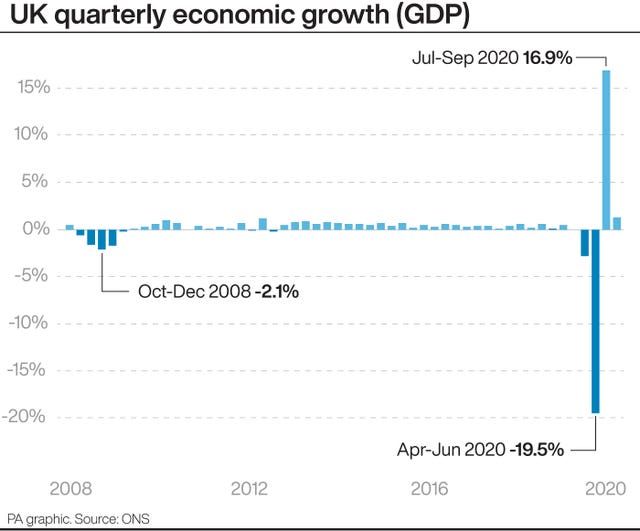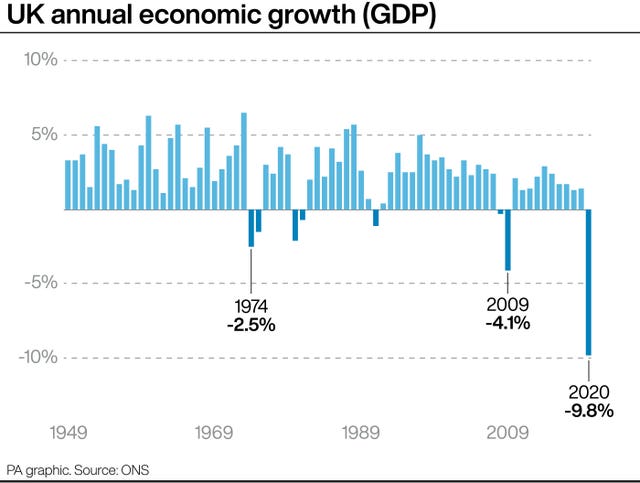
Richard Spurr 1am - 4am
31 March 2021, 10:34

The ONS said gross domestic product plummeted by 9.8% overall in 2020, against the 9.9% first estimated, after a raft of revisions.
The UK economy suffered a steeper contraction during the first coronavirus lockdown but bounced back more strongly than previously thought at the end of 2020, according to official figures.
The Office for National Statistics (ONS) said gross domestic product (GDP) – a measure of the size of the economy – shrank by even more than first forecast between April and June last year – plummeting by 19.5% against the 19% initial estimate.
However, in a raft of revisions to previous figures, the ONS said the economy rebounded by 16.9% and 1.3% in the third and fourth quarters of 2020 respectively.
This marked steep increases on the 16.1% and 1% previous estimates.
The widespread revisions left GDP plummeting by 9.8% overall in 2020, against the 9.9% first pencilled in, but still the worst annual performance for more than 300 years.
Jonathan Athow, deputy national statistician at the ONS, said: “Our revised quarterly figures show the economy shrank a little more than previously estimated in the initial stages of the pandemic, before recovering slightly more strongly in the second half of last year.
“However, these new estimates paint the same overall picture as before, with historically large falls in GDP in the spring, followed by a recovery in the summer and autumn.”

Due to the upward revision to figures for the final three months of 2020, the level of GDP was 7.3% below that of a year earlier, against a previous estimate of 7.8%, according to the ONS.
The 9.8% annual drop marks the steepest since official records began, while historical figures from the Bank of England suggest it is the biggest contraction since the Great Frost of 1709.
But the ONS stressed that its GDP estimates are “subject to more uncertainty than usual” and likely to have larger-than-normal revisions due to the challenges of collecting data in the pandemic.
The UK economy suffered among the largest contractions of all the countries in the Organisation for Economic Co-operation and Development (OECD), with only Spain and Argentina seeing steeper falls.

Recent monthly figures from the ONS also show that the third English lockdown sent GDP plunging 2.9% in January, though this was better than feared by experts.
Howard Archer, chief economic adviser to the EY Item Club, said he is now pencilling in a hit of just over 1% overall in the first quarter of 2021, compared with 3.4% previously forecast as the economy proves more resilient to lockdown disruption.
He added that data in the latest ONS release showing a rise in the household savings ratio to 16.1% between October and December and a record 16.3% over 2020 “suggests consumers overall are in a good position to spend as restrictions ease through the second quarter”.
In separate figures also released on Wednesday, the ONS said the UK current account deficit – the difference between the value of the goods and services the UK imports and the goods and services it exports – widened to £26.3 billion in the fourth quarter of 2020.
This is equivalent to 4.8% of Britain’s GDP and is almost twice the level seen in the previous three months as firms stockpiled imports ahead of the December 31 Brexit deadline.